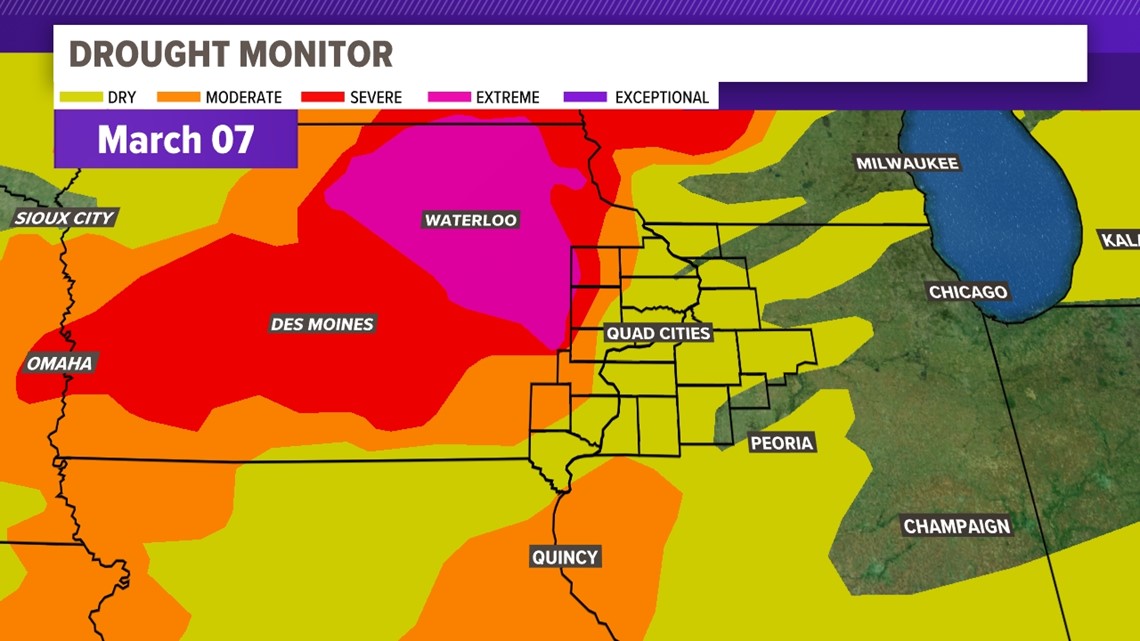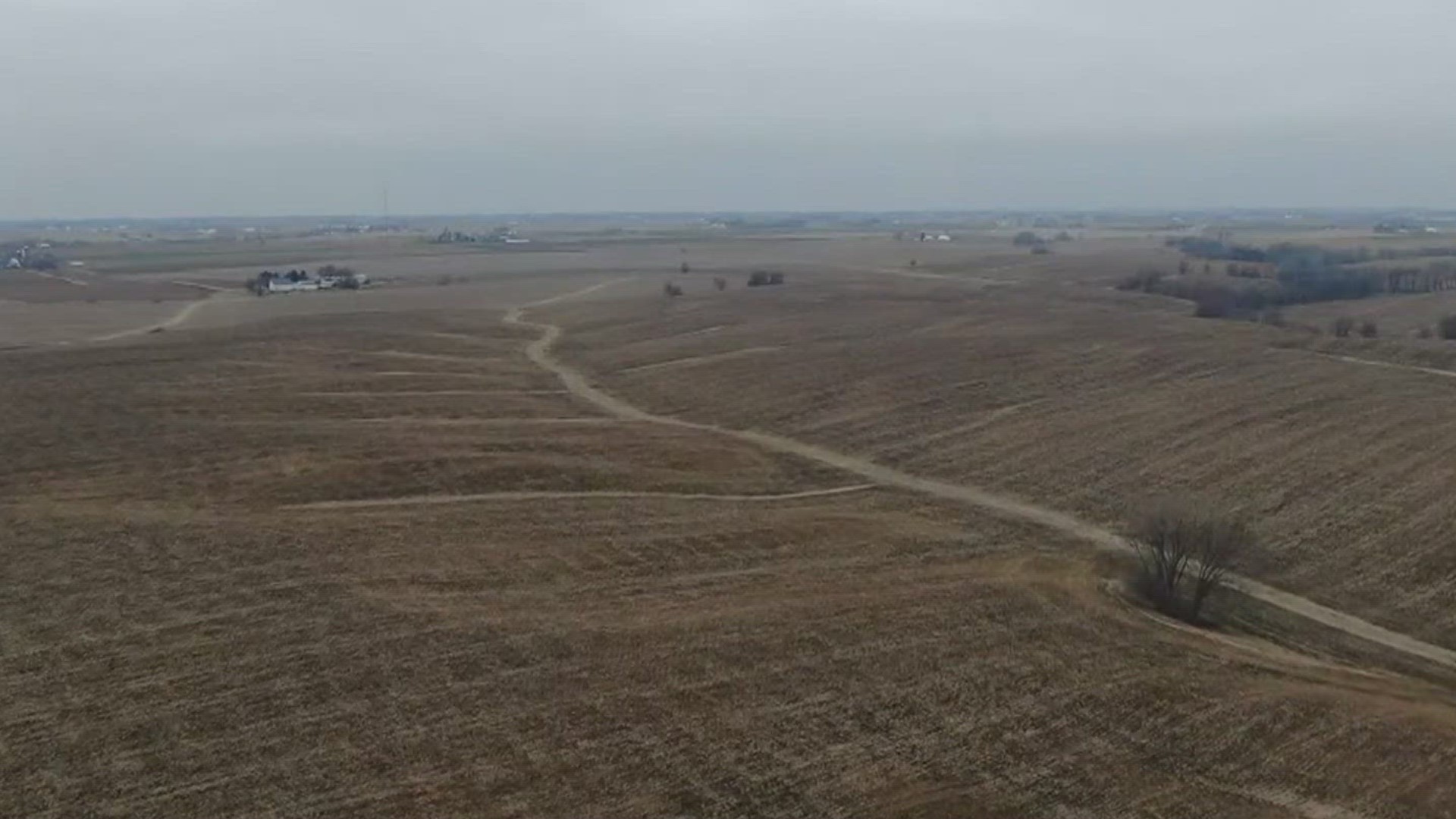TAYLOR RIDGE, Ill. — Planting season is just around the corner for area farmers. Our winter season has seen lows and highs with the second snowiest January on record. On the opposite end we saw the warmest February, the third warmest winter, and record breaking highs.
Through 2023 we struggle with persistent drought, especially in Iowa. Although the heavy snow and some rain seen in the month of January did provide some relief, we are starting to see trends to drier conditions. The most recent drought update that released the morning of March 7 shows Illinois is trending abnormally dry while persistent drought continues for parts of Iowa.


Phil Fuhr is a sixth generation farmer from Taylor Ridge, Illinois. He says the warmer and dry weather during the month of February has been great to get out in the field to do some work early, but more rain is definitely needed.
“We’re pretty fortunate, uhh, east of the Mississippi. Illinois looks pretty good on the drought map where you have adequate soil moisture, but I won’t say we have excessive. We’re definitely in need of some spring moisture and spring rainfall that would be ideal," said Fuhr.
The month of January was no doubt the most brutal month of our winter season, but we really didn't see a long stretch of cool temperatures. Farmers do like to see some good frost built up in the soil to help with soil quality and kill off some of the pests that can cause issues.
“Mild winter usually isn’t the best thing. Uhm, you really like that frost cycle. You want that ground to heave and thaw and it breaks up those layers of compaction. It also kills a lot of insects and bugs that we don’t like. And, uhh, typically you need a heavy frost to do that," said Fuhr.
Looking down the road Fuhr says that receiving a couple inches of rain a month would be ideal to keep soil moisture at preferred levels. More rain would also help out with Mississippi River levels which are abnormally low across the upper Mississippi basin.
“Upper Mississippi I’ve never seen river levels this low in March. Uhm, that’s a concern going forward if those river levels don’t rise they won’t be loading barges at… they’ll be loading them at half capacity or two-thirds. That’s something to watch," said Fuhr.

